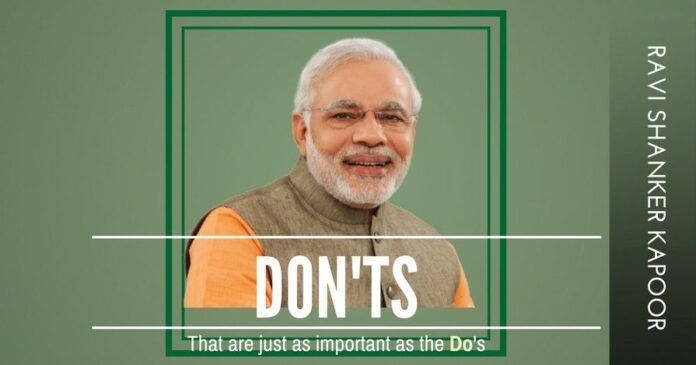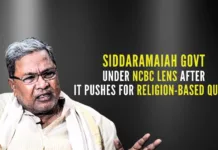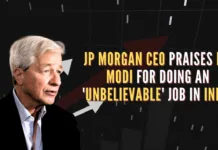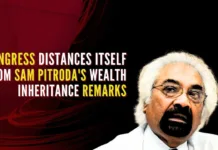
The newly constituted Economic Advisory Council to the Prime Minister (EAC-PM), which met last week, is working on a report on such themes as growth, fiscal framework, public expenditure, employment, agriculture, and the informal sector. There is no doubt that they, eminent experts as they are, would come up with a decent report; they will recommend to the government what it should do. The point, however, is to tell those who matter what not to do.
Don’t take investors for granted. Last month, the Railways Ministry announced, in a most cavalier fashion, that General Electric should make electric engines and not diesel ones. Which meant that the American firm’s 2015 contract, worth $2.6 billion for the supply of 1,000 diesel locomotives, would soon be nullified.
For the actions of the Narendra Modi regime have proved to be more troublesome than its inactions—its doings being too onerous for the wealth creators, be it big corporations, small businessmen, or the informal sector. Lack of reforms is tolerable, so is incrementalism; but sudden changes are not. Excessive, impulsive activism is proving to be worse than policy paralysis. This brings to mind former US president Ronald Reagan’s famous quote, “The most terrifying words in the English language are: I’m from the government and I’m here to help.”
The Prime Minister would help himself and the economy by sticking to the following don’ts:
- Don’t make abrupt policy announcements,a la demonetization. Nothing frightens businesspersons more than the tyranny of suddenness, for it results in unpredictability which they hate. They can tackle venality and bear inefficiency, but unpredictability is something that they can’t take in their stride.
- Don’t allow your ministers make anti-business announcements; ensure that they stick to the stated policy goals. You can’t have a Road Transport Minister who tells the Society of Indian Automobile Manufacturers (Siam) at a function organized by them, “You may not like it, but I wish it from my heart that your growth should be less”—and expect to enthuse potential investors. The Honorable Minister’s announcement came despite his own government lauding the domestic auto industry’s high growth, expecting it do even better, and hoping it to create 65 million additional jobs by 2026. Loose talk repels investors.
- Don’t unleash regulators on the industry. You can’t have the Food Safety and Standards Authority of India (FSSAI) trying to force restaurants to disclose nutritive and calorific value of the food they serve, and you can’t have a municipal corporation in the national Capital coercing hotels and eateries to allow their toilets to be used by anybody paying a fee—and expect to boost the hospitality sector.
- Don’t take investors for granted. Last month, the Railways Ministry announced, in a most cavalier fashion, that General Electric should make electric engines and not diesel ones. Which meant that the American firm’s 2015 contract, worth $2.6 billion for the supply of 1,000 diesel locomotives, would soon be nullified. Now GE had got the contract by way of competitive bidding. The project is not only the largest foreign direct investment in India by an American corporation but also the first one going to a foreign company after India let 100 per cent FDI in railways. It is also expected to boost the Make in India programme. The government rolled back the move in the wake of protest by GE (and maybe some pressure from the US government).
- Don’t invest too much in politics at the expense of the economy. To win UP Assembly elections, the government announced a farm loan waiver of over Rs 36,000 crore, which triggered a spate of demands from other states, many of which were acceded to. So far, farm loans over one lakh crore of rupees have been waived off. Instead of placating agriculturists, the populist move has actually whetted their appetite and further angered them because the relief, announced with much fanfare, is too little to take care of rural distress; often what they get are a few rupees. Meanwhile, fiscal prudence and debt discipline have been discarded. Populism always hurts—and in not the so long run. Indira Gandhi, for instance, lost all political capital she had gained by the disastrous move of bank nationalization. The nation is paying for that mother of all economic sins.
- Don’t resurrect Keynes. Focus on supply-side economics.
- Don’t make revenue maximization your policy. Revenue will rise when the economic activity becomes brisk. Make the business environment entrepreneur-friendly.
- Don’t rely too much on taxmen. Leaning on them to check corruption is not a very good idea, for these folks are not exactly the exemplars of probity. In fact, asking them to end corruption is akin to employing pedophiles to improve the management of a school.
- Don’t let saffron cowboys run berserk. They are bad news for the government, the economy, and the country.
- Don’t overwork. Let people themselves dorashtra nirman(nation building) and the government act as an umpire, intervening only to guarantee fairness. Reagan has a quote on that too: “It’s true hard work never killed anybody, but I figure, why take the chance?”
Note:
1. The views expressed here are those of the author and do not necessarily represent or reflect the views of PGurus.
- Liberty Is Penalized, Violence Goes Untouched - December 21, 2019
- Rahul’s Howdy bloomer - September 22, 2019
- Chidambaram’s hypocrisy - August 22, 2019










